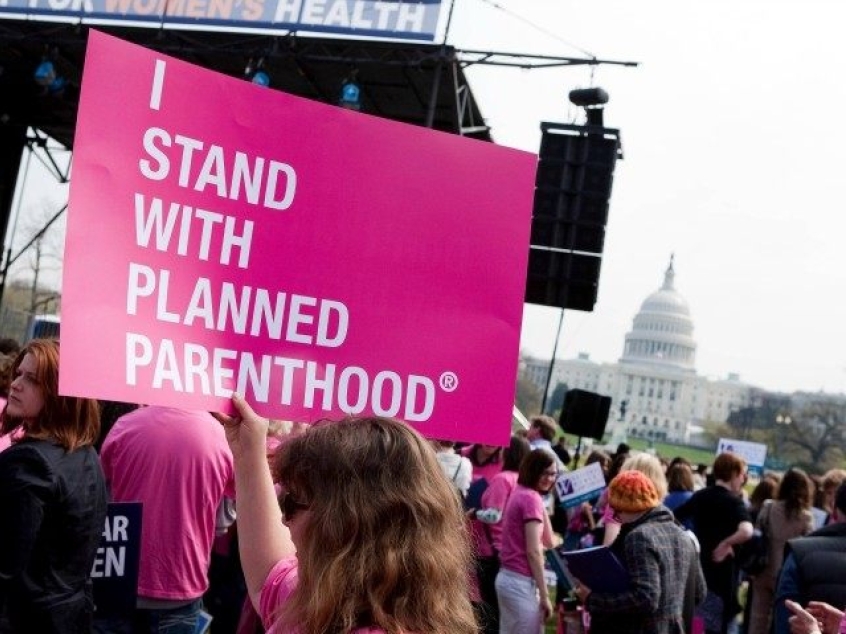
Donald Trump has said he will maintain federal funding for Planned Parenthood – if the health service stops providing abortions.
President Trump told the New York Times: 'As I said throughout the campaign, I am pro-life and I am deeply committed to investing in women's health and plan to significantly increase federal funding in support of non abortion services such as cancer screenings.'
He added: 'There is an opportunity for organisations to continue the important work they do in support of women's health, while not providing abortion services.'
The notion has been roundly rejected by Planned Parenthood Federation of America President Cecile Richards. She said: 'We will always stand for women's ability to make decisions about their health and lives, without interference from politicians in Washington, DC.'
Trump pointed to polling showing that most Americans do not favour federal funding for abortions. Dawn Laguens, Planned Parenthood's vice president, said: 'Let's be clear: Federal funds already do not pay for abortions.
'Offering money to Planned Parenthood to abandon our patients and our values is not a deal that we will ever accept. Providing critical health care services for millions of American women is non-negotiable.'
According to the Congressional Budget Office, almost $400 million in federal Medicaid funding goes to Planned Parenthood. Revoking said support would result in around 400,000 US women losing access to the group's health care, according to the Catholic Herald.
Trump had originally supported abortion rights before he changed his position in 2011, when he announced his pro-life stance. His Catholic Vice President Mike Pence is strongly opposed to abortion and Trump's health secretary Tom Price has also supported axing taxpayer funding of Planned Parenthood.
One of Trump's first moves as President was a controversial ban of federal funding for international groups providing abortions or information about abortions overseas. Critics said the policy would have a dire impact on vulnerable women in the developing world.













